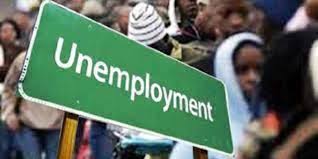Despite notable economic gains in recent years, Ghana’s Government Statistician, Dr. Alhassan Iddrisu, has issued a sobering warning indicating that, the country’s rising Gross Domestic Product (GDP) masks a deeper, more persistent challenge of high unemployment, especially among the youth.
Speaking at the High-Level Political Forum on Sustainable Development in New York, Dr. Iddrisu underscored the paradox of growth without jobs, describing it as a “dignity gap” that threatens the very essence of Sustainable Development Goal 8 (SDG 8): decent work and economic growth.
Dr. Iddrisu began by acknowledging Ghana’s commendable macroeconomic performance.
In 2024, the country posted a 5.7% GDP growth rate significantly higher than the Sub-Saharan African average.
Furthermore, inflation has been brought under control, dropping from a record 54% in 2022 to 13.7% by June 2025.
These achievements, he said, reflect the resilience of Ghana’s economy in the face of global shocks.
But the celebration, he cautioned, must be tempered by realism.
“Macroeconomic gains are not enough. Unemployment remains high at 14.7%, and youth joblessness exceeds 25%” Dr. Iddrisu stated warned that a fixation on headline economic figures risks overlooking the human realities beneath the surface.
Margins
A critical part of the problem, according to Dr. Iddrisu, is the structural imbalance in Ghana’s labour market.
Over 70% of the labour force, he noted, remains trapped in the informal sector where job security, benefits, and career advancement are virtually non-existent.
Women and young people constitute the majority of this informal economy, placing them at a disadvantage in terms of economic mobility and social protection.
“This is not just a jobs gap. It is a dignity gap,” he said.
Dr. Iddrisu emphasized that decent work is about more than employment, he said it is about respect, fairness, and opportunity.
To address these challenges, Ghana has embarked on a comprehensive “Reset Agenda,” designed to stimulate employment, enhance skills, and protect vulnerable populations.
Key initiatives under this agenda include: The 24-Hour Economy Initiative, which aims to expand economic activity beyond traditional working hours; A US$10 billion “Big Push” infrastructure programme, set to create jobs and modernize public infrastructure; The 1.0 Million Coders Initiative, a bold effort to equip one million young people with digital and coding skills for the future of work.
The government is also embedding employment creation targets into macroeconomic frameworks, including monetary policy, and formalizing previously neglected sectors such as artisanal mining to create safer, regulated job environments.
Data Policy
However, Dr. Iddrisu stressed that these efforts will only succeed if backed by robust, real-time data. Since 2022, Ghana has started producing quarterly labour statistics, an essential shift from relying on outdated, infrequent surveys.
In 2025, the Ghana Statistical Service (GSS) is expected to roll out a national skills mismatch survey to align vocational and technical training with actual labour market demands.
“Our compass for this transformation is data. If we are serious about SDG 8, data must be treated as core infrastructure, essential to recovery, not incidental to it.”
With just five years left to reach the 2030 Sustainable Development Goals, Dr. Iddrisu issued a passionate appeal to global leaders:
“Let us act, not just commit, in these final five years. The future of work, and the dignity of workers, depend on this action.”
His message resonated strongly with participants at the UN forum, highlighting Ghana’s role as both a cautionary tale and a source of innovation in the global push for inclusive economic growth.


Comments are closed.